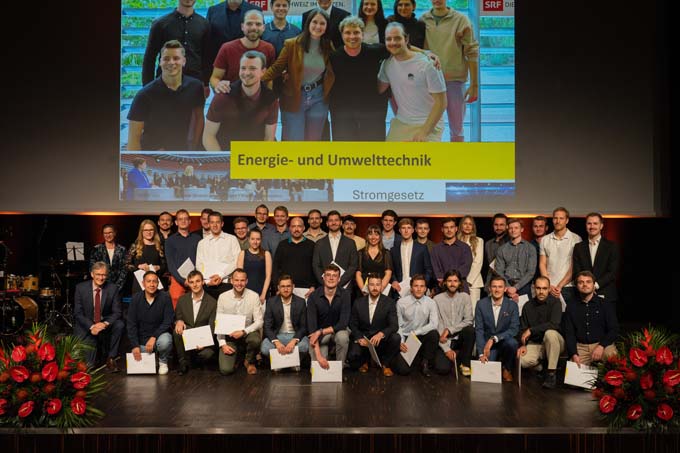Standards for Industry 4.0 are being developed internationally
The Swiss Association for Standardization (SNV) delegates Swiss experts to international committees so that they can contribute their know-how in connection with Industry 4.0.

What do standards regulate? To answer this question, you need to know the standardisation process. The SNV does not draw up any Swiss standards for the topic of Industry 4.0. However, it is involved in an international network and delegates Swiss experts to international standards committees. These experts contribute their ideas and expertise to global standardisation organisations such as ISO, IEC, CEN, CENELEC and other international associations. At the same time, participation enables those involved to be aware of the latest discussions and developments at an early stage and to use these for their own organization. After all, standards are developed from practice for practice. The knowledge advantage can also help a Swiss company to align itself with the latest developments at a very early stage, especially in the area of Industry 4.0.
Standardization stands for open systems
Industry 4.0 is based on the rapid progress of information and communication technologies. This area is correspondingly diverse and complex. This also makes it clear that there are hardly any standards that cover the entire area of Industry 4.0. The machine parts, connectors, controls and other digital elements required are too diverse. Standardization is therefore primarily involved in the area of data exchange, so that individual systems can communicate with each other. After all, Industry 4.0 should ultimately lead to efficient production that conserves resources. For example, the system reports that a drill needs to be replaced after another 100 drillings. Since this can be provided in good time, there is no downtime. Faulty production is also avoided because the drill is replaced before it drills incorrectly. However, the part is not replaced during routine service as it used to be, but only when it is actually worn out. The drill is monitored with sensors. As soon as a limit value is exceeded, it sends a message to the machine's "digital twin". This information can be called up from anywhere via the Internet or, depending on the system, an automatic order can even be triggered.
This interaction, the interoperability of the individual elements, is therefore central. This requires professional software that is based on standardized interfaces and thus enables data exchange and profitable data use. There are companies that deliberately design their products in such a way that they are not compatible with others, in the sense of a one-stop shop. In this way, they want to persuade customers to use only their products. This may have its advantages, but at the same time it creates dependencies or limits the possibilities. And if one assumes that individual solutions often have to be sought in the industrial sector, then linking standardized elements with specially manufactured components is only possible with open systems that can be linked via interfaces. Accordingly, standardization aims to achieve the best possible compatibility, particularly with regard to these interfaces, in order to achieve the greatest possible flexibility. Further topics of standardization in the field of Industry 4.0 are data security, integration and automation of systems, artificial intelligence and safety aspects in the interaction of machines and employees.
The future is already here
In the long term, companies, whether small or large, can hardly avoid dealing with Industry 4.0 and investing in this direction. If they do not do so, this will have a detrimental effect sooner or later. This is because competitors will be able to produce more cost-effectively, as Industry 4.0 leads to more efficient and resource-conserving production. Standards enable plants to be expanded at a later date or individual components to be modernised.
Contact for further information:
Marcel Knecht, marcel.knecht@snv.ch, Tel: +41 52 224 54 27
The most important standards on the subject of Industry 4.0
SN EN ISO/IEC 27001:2017 - Information technology - Security procedures - Information security management systems - Requirements
IEC PAS 63088:2017 - Smart manufacturing - Reference architecture model industry 4.0 (RAMI4.0)
ISO/IEC 21823-Standards series - Internet of things (IoT) - Interoperability for IoT systems
ISO/IEC 30161:2020 - Internet of Things (IoT) - Requirements of IoT data exchange platform for various IoT services









